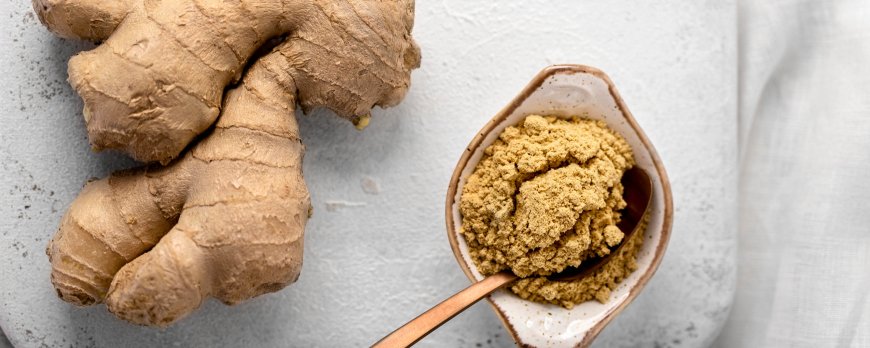Is turmeric better than ibuprofen?
Explore the comparison: Is turmeric better than ibuprofen? Learn about their effectiveness, benefits, and risks in our comprehensive guide.

Is turmeric better than ibuprofen?
Turmeric has gained popularity as a potential alternative to ibuprofen for pain relief due to its numerous health benefits. Specifically, its main active component, curcumin, has been found to have anti-inflammatory properties and may be a potential treatment for conditions such as arthritis. One study even found that taking turmeric extract was comparable to taking a 1,200-milligram dose of ibuprofen daily.
Turmeric has also been shown to potentially reduce cholesterol and triglyceride levels and lessen symptoms of rheumatoid arthritis. However, it is important to note that more research is needed to confirm these effects and to fully understand the benefits and potential side effects of turmeric and curcumin.
While turmeric is generally safe when taken in limited amounts, higher doses or long-term use may cause gastrointestinal upset. It is also important to use turmeric with caution if you have gallbladder disease or if you are taking anti-clotting medications or chemotherapy.
On the other hand, ibuprofen, a commonly used nonsteroidal anti-inflammatory drug (NSAID), can have serious side effects such as gastrointestinal bleeding, kidney and liver damage, and an increased risk of heart attack and stroke. Turmeric, specifically curcumin, has similar anti-inflammatory effects to ibuprofen but with fewer side effects.
However, it is worth noting that curcumin is poorly absorbed by the body in its pure form. Therefore, it is recommended to take curcumin extract rather than straight turmeric for better absorption and effectiveness as a pain management option.
In summary, turmeric shows promise as an alternative to ibuprofen for pain relief, thanks to its anti-inflammatory properties. However, more research is needed to fully understand its benefits, potential side effects, and the most effective form of supplementation. As always, it is advisable to consult with healthcare professionals before making any changes to your pain management regimen.
Key Takeaways:
- Turmeric, specifically curcumin, has anti-inflammatory properties and may be a potential alternative to ibuprofen for pain relief.
- Studies have found that turmeric extract can be as effective as ibuprofen in reducing inflammation.
- Turmeric may also have additional health benefits, such as reducing cholesterol and triglyceride levels.
- Higher doses or long-term use of turmeric may cause gastrointestinal upset, so it should be used with caution.
- Ibuprofen can have serious side effects, while turmeric has similar anti-inflammatory effects with fewer side effects.
- Curcumin, the active component of turmeric, is poorly absorbed by the body in its pure form, so curcumin extract is recommended for better absorption.
- Further research is needed to fully understand the benefits, potential side effects, and the most effective form of turmeric supplementation.

The effectiveness of turmeric and ibuprofen
Both turmeric and ibuprofen have been shown to be effective in reducing inflammation and alleviating pain, but their mechanisms of action differ. Turmeric, specifically its main active component curcumin, has been found to have potent anti-inflammatory properties. It works by inhibiting enzymes that promote inflammation in the body, thus reducing pain and swelling.
One study comparing the effects of turmeric extract to ibuprofen found that the two were equally effective in reducing inflammation. Participants who took turmeric extract experienced a comparable reduction in pain and swelling as those who took a daily dose of 1,200 milligrams of ibuprofen. These findings suggest that turmeric could be a natural alternative to ibuprofen for managing inflammation.
However, it is important to note that curcumin, the active component of turmeric, is poorly absorbed by the body in its pure form. To maximize its effectiveness, curcumin extract is recommended instead of straight turmeric. This allows for better absorption and bioavailability, enhancing its anti-inflammatory properties.
While turmeric and curcumin offer potential benefits in reducing inflammation, it is crucial to consult with a healthcare professional before incorporating them into your treatment plan. They may interact with certain medications or medical conditions, particularly if taken in high doses or for extended periods. Additionally, more research is needed to fully understand the long-term effects and potential risks associated with turmeric and curcumin supplementation.
Benefits of Turmeric
Turmeric offers a range of health benefits beyond pain relief, making it a popular choice in natural medicine and herbal supplements. Its main active component, curcumin, has been found to have powerful anti-inflammatory properties, which can help reduce inflammation in the body. This makes turmeric a potential treatment for conditions such as arthritis, where inflammation plays a major role.
In addition to its anti-inflammatory effects, turmeric has also shown promise in reducing cholesterol and triglyceride levels, which are important markers of heart health. It may also help alleviate symptoms of rheumatoid arthritis, such as joint pain and stiffness. However, it's important to note that more research is needed to fully understand the extent of these benefits.
While turmeric is generally considered safe when taken in limited amounts, taking higher doses or using it for an extended period of time may cause gastrointestinal upset. It is also important to use caution if you have gallbladder disease or if you are taking medications that have anti-clotting or chemotherapy effects, as turmeric may interact with these drugs.
When comparing turmeric to ibuprofen, it is worth noting that both have similar anti-inflammatory effects. However, ibuprofen can have serious side effects such as gastrointestinal bleeding, kidney and liver damage, and an increased risk of heart attack and stroke. In contrast, turmeric, particularly curcumin, offers similar anti-inflammatory benefits with fewer side effects.
It is important to keep in mind that curcumin, the active component of turmeric, is poorly absorbed by the body in its pure form. To enhance its absorption and maximize its effectiveness, it is recommended to take curcumin extract instead of straight turmeric. Further research is needed to fully understand the benefits and potential side effects of turmeric and curcumin, but they hold promise as a natural alternative for pain relief and overall wellness.

Risks and Side Effects of Ibuprofen
While ibuprofen is widely used for pain relief, it is important to be aware of the potential risks and side effects associated with its long-term use. Ibuprofen belongs to a class of medications known as nonsteroidal anti-inflammatory drugs (NSAIDs), which can be effective in reducing pain and inflammation. However, prolonged or excessive use of ibuprofen can lead to several health concerns.
Gastrointestinal Issues
- Ibuprofen can irritate the lining of the stomach and intestines, increasing the risk of gastrointestinal bleeding and ulcers.
- Long-term use of ibuprofen may also contribute to the development of stomach or intestinal perforations.
Kidney and Liver Damage
- Regular use of ibuprofen can put a strain on the kidneys, potentially leading to kidney damage or dysfunction.
- Ibuprofen can also affect liver function and may cause liver damage, especially in individuals with pre-existing liver conditions.
Cardiovascular Risks
- Studies have shown that ibuprofen may increase the risk of heart attack and stroke, particularly when used at high doses or for prolonged periods.
- Individuals with existing cardiovascular conditions or those at higher risk of heart disease should exercise caution when using ibuprofen.
Allergic Reactions
Some individuals may experience allergic reactions to ibuprofen, including rashes, hives, swelling, and difficulty breathing. It is crucial to seek medical attention if you develop any signs of an allergic reaction after taking ibuprofen.
Considering these potential risks and side effects, it may be worth exploring alternative options for pain relief. Turmeric, with its natural anti-inflammatory properties, can be a viable alternative to ibuprofen. However, it is important to consult with a healthcare professional before making any changes to your medication regimen.
Potential Risks of Turmeric
While generally safe, it is important to be cautious when using turmeric, especially in higher doses or for prolonged periods. Here are some potential risks associated with turmeric:
- Gastrointestinal Upset: Taking high doses of turmeric or using it for extended periods may cause digestive issues such as bloating, gas, and indigestion.
- Interactions with Medications: Turmeric may interact with certain medications, including anti-clotting drugs and chemotherapy medications. It is important to consult with your healthcare professional if you are taking these medications.
- Precautions for Specific Conditions: Individuals with gallbladder disease or gallstones should use turmeric with caution, as it may worsen their condition. It is best to seek medical advice in these cases.
Despite these potential risks, turmeric has shown promising health benefits. It is known for its anti-inflammatory properties and may be beneficial for conditions like arthritis. However, more research is needed to fully understand the effects of turmeric and its active component, curcumin.
If you are considering using turmeric as a supplement or natural remedy, it is important to discuss it with your healthcare professional. They can provide guidance on the appropriate dosage and duration of use, taking into account any pre-existing conditions or medications you may be taking. Remember, it is always best to exercise caution and seek professional advice when incorporating any new supplement into your routine.

Curcumin and its benefits
Curcumin, the main bioactive compound in turmeric, has shown promising results in pain management and reducing inflammation. Studies have found that curcumin can inhibit the activity of inflammatory enzymes and reduce the production of inflammatory molecules in the body. This makes it a potential natural remedy for conditions such as arthritis, where inflammation plays a significant role in pain and joint damage.
In addition to its anti-inflammatory properties, curcumin has also been found to possess antioxidant effects, which can help protect cells from damage caused by free radicals. This may contribute to its potential benefits in reducing inflammation and supporting overall health.
While curcumin has shown promise as a natural pain reliever and anti-inflammatory agent, it's important to note that its absorption by the body in its pure form is relatively low. To enhance its bioavailability, curcumin extract is often recommended, as it contains higher concentrations of curcumin and is formulated to improve absorption.
Curcumin and its benefits:
- Has shown potential in reducing inflammation and managing pain
- Exhibits antioxidant effects, protecting cells from damage
- May be beneficial for individuals with conditions like arthritis
- Curcumin extract is recommended for enhanced absorption
As with any supplement or natural remedy, it's important to consult with a healthcare professional before incorporating turmeric or curcumin into your routine, especially if you have specific medical conditions or are taking certain medications. Further research is needed to fully understand the benefits and potential side effects of turmeric and its active compound, curcumin.
Absorption issues and curcumin extract
To maximize the benefits of curcumin for pain management, it is recommended to use curcumin extract rather than regular turmeric due to absorption issues. Curcumin, the active component of turmeric, has been found to have powerful anti-inflammatory effects. However, it is poorly absorbed by the body in its pure form, limiting its effectiveness.
By using curcumin extract, the bioavailability of curcumin can be significantly increased, allowing for better absorption and utilization by the body. Curcumin extract is formulated to enhance its absorption and maximize its therapeutic potential. This is particularly important when using curcumin for pain management and reducing inflammation, as adequate absorption is necessary for optimal results.
Benefits of curcumin extract:
- Enhanced bioavailability
- Improved absorption
- Increased efficacy in reducing inflammation
- Potential for better pain management
With curcumin extract, you can harness the full potential of curcumin as a natural pain relief remedy. It offers similar anti-inflammatory effects to ibuprofen but with fewer side effects. However, it is important to note that further research is needed to fully understand the benefits and potential side effects of turmeric and curcumin. Consulting with healthcare professionals is always recommended before starting any new supplement or treatment.

Research on Turmeric and Ibuprofen
Several studies have shown promising results when comparing the effects of turmeric and ibuprofen in pain relief and reducing inflammation. Turmeric, specifically its main active component curcumin, has been found to have potent anti-inflammatory properties that may make it a viable alternative to ibuprofen. One study found that taking turmeric extract was comparable to taking a 1,200-milligram dose of ibuprofen daily, suggesting that turmeric may offer similar benefits in managing pain and inflammation.
Turmeric has also been shown to potentially reduce cholesterol and triglyceride levels, which are important markers of heart health. Additionally, some research suggests that turmeric may help alleviate symptoms of rheumatoid arthritis, a chronic inflammatory condition affecting the joints. These findings highlight the potential of turmeric as a natural remedy for various health conditions.
However, it is important to note that further research is needed to fully understand the benefits and potential side effects of turmeric and its active component curcumin. While turmeric is generally safe when consumed in limited amounts, higher doses or long-term use may cause gastrointestinal upset. Individuals with gallbladder disease, as well as those taking anti-clotting medications or undergoing chemotherapy, should exercise caution when using turmeric. On the other hand, ibuprofen can have serious side effects such as gastrointestinal bleeding, kidney and liver damage, and increased risk of heart attack and stroke.
To maximize the potential benefits of curcumin, it is recommended to take curcumin extract rather than straight turmeric. This is because curcumin is poorly absorbed by the body in its pure form. Curcumin extract offers a more concentrated and bioavailable form of curcumin, enhancing its effectiveness as a natural remedy for pain relief and reducing inflammation. Further studies are necessary to fully understand the specific mechanisms and best practices for utilizing turmeric and curcumin for optimal health benefits.
Using turmeric as a holistic remedy
Turmeric is often embraced as a key ingredient in holistic remedies due to its natural pain relief and anti-inflammatory properties. Its main active component, curcumin, has been found to have significant potential in reducing inflammation and may offer relief for conditions such as arthritis. In fact, a study has shown that taking turmeric extract can be comparable to a daily dose of 1,200 milligrams of ibuprofen. This makes turmeric an attractive alternative for those seeking natural pain relief.
Aside from its anti-inflammatory effects, turmeric has also been associated with other health benefits. Some studies suggest that it may help reduce cholesterol and triglyceride levels, making it a potential ally in heart health. Additionally, turmeric has shown promise in managing symptoms of rheumatoid arthritis. However, it's important to note that more research is needed to fully understand and confirm these effects.
While turmeric is generally considered safe when used in limited amounts, it's important to exercise caution when taking higher doses or using it long-term. In these cases, gastrointestinal upset may occur. It's also worth mentioning that individuals with gallbladder disease or those taking anti-clotting medications or chemotherapy should use turmeric with caution.
On the other hand, ibuprofen, a commonly used nonsteroidal anti-inflammatory drug (NSAID), comes with its own set of risks and side effects. These can include gastrointestinal bleeding, kidney and liver damage, and an increased risk of heart attack and stroke. Turmeric, specifically curcumin, has been found to possess similar anti-inflammatory properties to ibuprofen but with fewer side effects.
It's important to note that curcumin, in its pure form, is not effectively absorbed by the body. To overcome this limitation, curcumin extract is recommended to ensure optimal absorption and efficacy. Further studies are still needed to fully understand the potential benefits and possible side effects of turmeric and curcumin. If you are considering using turmeric as a holistic remedy, it is best to consult with a healthcare professional to determine the most appropriate dosage and formulation for your needs.

Potential limitations and the need for further research
While turmeric shows promise as a natural medicine, further research is required to establish its full range of benefits and potential side effects. Although some studies have suggested that turmeric, specifically its active component curcumin, may have anti-inflammatory properties and could potentially be used to treat conditions such as arthritis, more comprehensive studies are needed to confirm these effects and determine the optimal dosage and duration of treatment.
In addition, the bioavailability of curcumin is a significant concern. Curcumin is poorly absorbed by the body in its pure form, limiting its effectiveness. Researchers are exploring different methods, such as combining curcumin with other substances or using specialized delivery systems, to improve its absorption and bioavailability.
Key areas for future research:
- Exploring the potential benefits of turmeric in reducing cholesterol and triglyceride levels
- Investigating the effects of curcumin on managing symptoms of rheumatoid arthritis
- Assessing the long-term safety and efficacy of turmeric and curcumin supplementation
- Examining the interaction between turmeric and other medications
Until more robust research is conducted, it is important to exercise caution when using turmeric as a natural remedy. It is advisable to consult with healthcare professionals, especially if you have any pre-existing medical conditions or are taking medications that may interact with turmeric or curcumin. Always follow the recommended dosage guidelines and consider using curcumin extract, which may offer better bioavailability compared to consuming straight turmeric.
Conclusion
In conclusion, turmeric offers a safer alternative to ibuprofen for natural pain relief and reducing inflammation. Studies have shown that turmeric, specifically its active component curcumin, has anti-inflammatory properties comparable to those of ibuprofen. One study even found that turmeric extract was as effective as a daily 1,200-milligram dose of ibuprofen. Turmeric has also shown potential in reducing cholesterol and triglyceride levels, as well as alleviating symptoms of rheumatoid arthritis.
However, it is important to note that more research is needed to fully understand the benefits and potential side effects of turmeric. While turmeric is generally safe when consumed in limited amounts, higher doses or long-term use may lead to gastrointestinal upset. Individuals with gallbladder disease or those taking anti-clotting medications or chemotherapy should exercise caution when using turmeric. It is also important to consider the poor absorption of curcumin by the body in its pure form.
To maximize the benefits of curcumin, it is recommended to take curcumin extract rather than plain turmeric. This can help overcome the absorption issues and ensure that the body receives an adequate amount of curcumin for its anti-inflammatory effects. It is essential to consult with healthcare professionals before incorporating turmeric or curcumin supplements into your daily routine.
Conclusion
In conclusion, turmeric offers a safer alternative to ibuprofen for natural pain relief and reducing inflammation, although further research is needed to fully understand its effects.
Factual data suggests that turmeric, particularly its active component curcumin, possesses anti-inflammatory properties and may be beneficial for conditions like arthritis. In fact, one study found that turmeric extract was comparable to a daily dose of 1,200 milligrams of ibuprofen. Turmeric has also shown promise in reducing cholesterol and triglyceride levels and alleviating symptoms of rheumatoid arthritis. However, more comprehensive research is required to confirm these effects.
While turmeric is generally safe when consumed in moderate quantities, higher doses or prolonged use may result in gastrointestinal upset. It is important to exercise caution if you have gallbladder disease or are taking medications for blood clotting or chemotherapy.
In contrast, ibuprofen can have severe side effects such as gastrointestinal bleeding, kidney and liver damage, and an increased risk of heart attack and stroke. However, turmeric, specifically curcumin, exerts similar anti-inflammatory effects to ibuprofen but with fewer associated side effects.
It is worth noting that curcumin is poorly absorbed by the body in its pure form. Thus, it is advisable to opt for curcumin extract rather than straight turmeric for enhanced efficacy. Further studies are essential to fully comprehend the benefits and potential side effects of turmeric and curcumin.
FAQ
Is turmeric a better alternative to ibuprofen?
Turmeric, specifically its active component curcumin, has been found to have anti-inflammatory properties and may be a potential treatment for conditions such as arthritis. Some studies have found that turmeric extract can be comparable to a daily dose of ibuprofen. However, more research is needed to confirm these effects.
What are the benefits of turmeric?
Turmeric has been shown to potentially reduce cholesterol and triglyceride levels and lessen symptoms of rheumatoid arthritis. It is also used in natural medicine and herbal supplements due to its various health benefits. However, further research is needed to fully understand these benefits.
What are the risks and side effects of ibuprofen?
Ibuprofen can have serious side effects such as gastrointestinal bleeding, kidney and liver damage, and increased risk of heart attack and stroke. It is important to consider safer alternatives for pain relief.
What are the potential risks of turmeric?
Turmeric is generally safe when taken in limited amounts, but higher doses or long-term use may cause gastrointestinal upset. It should be used with caution if you have gallbladder disease or are taking anti-clotting medications or chemotherapy.
What are the potential benefits of curcumin?
Curcumin, the active component of turmeric, has similar anti-inflammatory effects to ibuprofen but with fewer side effects. It may help with pain management and reducing inflammation. However, curcumin is poorly absorbed by the body in its pure form, so curcumin extract is recommended for better efficacy.
Are there any absorption issues with curcumin?
Yes, curcumin is poorly absorbed by the body. To overcome this, curcumin extract is often used for pain management. It is important to find the right form of curcumin supplementation for optimal results.
What does the research say about turmeric and ibuprofen?
Some studies have found turmeric to be comparable to ibuprofen in terms of pain relief and anti-inflammatory properties. However, more research is needed to fully understand the effects of turmeric compared to ibuprofen.
Can turmeric be used as a holistic remedy?
Yes, turmeric is often used as a holistic remedy for pain relief and inflammation. It can be incorporated into a holistic approach to health and wellness.
Are there any limitations to the existing research on turmeric?
Yes, existing research on turmeric has limitations, and more comprehensive studies are needed to fully understand its benefits and potential side effects. It is recommended to consult with healthcare professionals before using turmeric for any specific condition.
How does turmeric compare to ibuprofen as an alternative for pain relief?
Turmeric, specifically curcumin, has similar anti-inflammatory effects to ibuprofen but with fewer side effects. It may be a safer alternative for natural pain relief and reducing inflammation.


































































































































